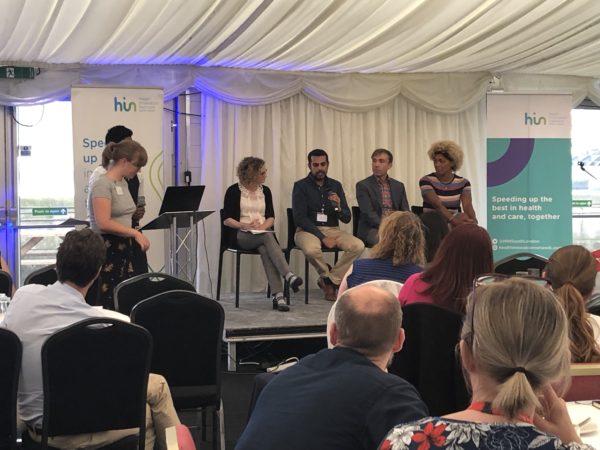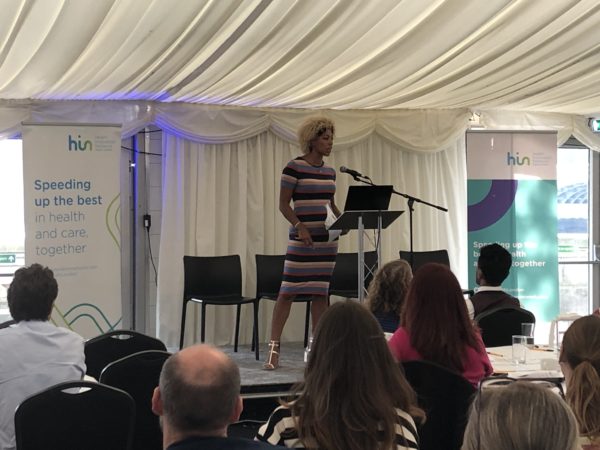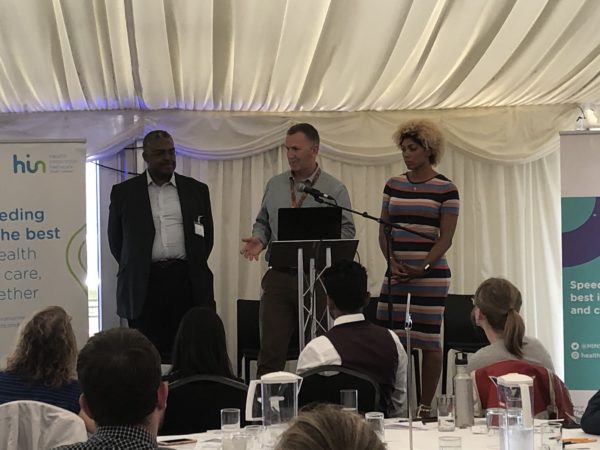Health Innovation Network partnered with the British Heart Foundation and the London Cardiac Rehabilitation Network to create an Innovation Exchange event where clinicans and innovators could discuss how digital solutions can help improve uptake of cardiac rehabilitation services, and the result was overwhelmingly positive, says Anna King.
More and more, I am approached by NHS clinical leaders looking for digital solutions to help them transform their services. Gone are the days when clinicians rejected the idea that patients would use technology. Gone are the days when they believed technology could not improve outcomes. And gone are the days when clinicians worried about their job being taken by a robot. Now instead, clinicians are asking whenthey will get the digital tools they need to improve outcomes, efficiency and patient care. Well, at least this was the fantastic response we had from the London Cardiac Rehabilitation Network members’ recent Innovation Exchange event.
At the event, the challenges that cardiac services are facing were clearly set out by key opinion leaders Sally Hinton (BACPR Executive Director) and Patrick Doherty (Director of the National Audit for Cardiac Rehabilitation), along with patient representative Rob Elvins. The challenges they all raised were uptake and access. But they also highlighted the benefits of improving outcomes and uptake in this area too.
The NHS Long Term Plan (LTP) sets cardiac rehabilitation out as an intervention that can save lives, improve quality of life and reduce hospital readmissions. It’s also recommended by NICE. However, uptake of cardiac services currently varies widely across England and only 52% of the 121,500 eligible patients per year are taking up offers of cardiac rehabilitation. If we can increase this uptake to 85% by 2028, as set out by the LTP, it will prevent 23,000 premature deaths and 50,000 acute admissions over 10 years. Furthermore, it would make the NHS amongst the best in Europe. This suggests to me there is plenty of scope to improve services to the standard we all aspire to.
Many of the cardiac rehabilitation services present at the Innovation Exchange believed – as I do – that digital solutions are the only way they will manage to significantly increase uptake with current resources. Especially as uptake is lower in women, the young and those for whom it is their only health condition; a group of patients who might find digital or hybrid rehabilitation opportunities very attractive.
Many innovators applied to contribute to the event, which demonstrates the high level of interest and potential in this area. The selected innovators proved that many of these valuable digital solutions are not only already available, but they are comprehensive rehab programmes that are well-evidenced and could bolt onto existing services right now. There were also innovators with systems in other similar areas of care, that were willing to co-develop solutions for cardiac rehab. It was fantastic to see the energy that came from get all the innovators both from services and those with potential solutions together. I am looking forward to seeing how the plans made develop over the coming months.
The Exchange closed with the panel discussing the way ahead for cardiac rehabilitation and the technology they would implement. Patrick Doherty summed discussions up by saying that you could no longer consider that you run a good cardiac rehab service unless you offered digital and home-based options for patients too. I don’t think anyone will have left the event without thinking the time has come for all cardiac rehabilitation services to have digital components, and many more of London’s cardiac rehabilitation services will be taking those important steps towards implementation.
Find out more about the companies who participated in the Innovation Exchange:
The showcasing innovators:
The exhibiting innovators:
Enjoy this blog? Then we think you’d also like:
Digital innovation in cardiac rehabilitation essential to boost attendance rates
Top Tips for Innovators
Digital is helping us tackle healthcare inequalities, but the real issues are deeper and run system-wide
About the author
Anna has been Commercial Director at the Health Innovation Network since July 2013. Prior to her current role Anna was the Commercial Programme Director at the London Commercial Support Unit (Commissioning Support for London, NHS London and NHS Trust Development Authority).





